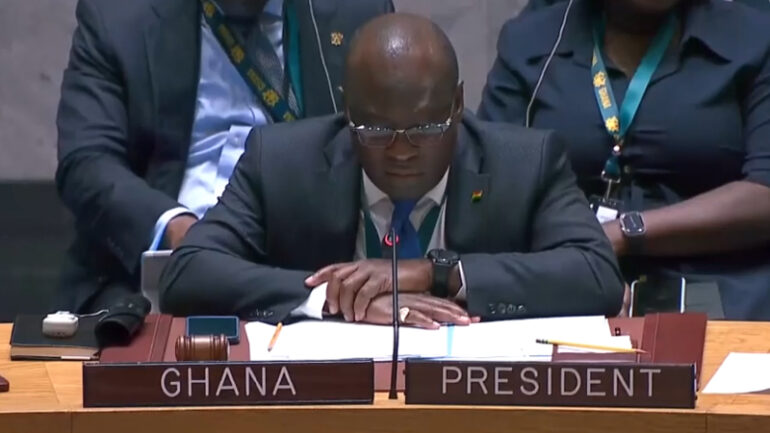Briefing by the United Nations High Commissioner for Refugees

Excellencies,
At the outset, I would like to thank the High Commissioner for Refugees, Mr.Fillipo Grandi for his insightful briefing, which provides a clear picture of the global refugee situation. The common determination to evolve the global architecture for addressing the world refugee situation makes the role of the UNHCR, the UN’s Refugee Agency, critical for saving lives, protecting rights and building a better future for refugees, forcibly displaced communities and stateless people. While acknowledging the important measures in place at the national and regional levels in addressing the global refugee situation, we remain concerned about the continuous rise in the global refugee numbers. As of May 2022, 100 million individuals were forcibly displaced worldwide.
This accounts for an increase of 10.7 million people displaced from the end of the previous year. The war on Ukraine has been a major driver but in many parts of the continent of Africa the situation remains dire with more than 26 percent (over 18 million) of the world’s refugees hosted in sub-Saharan Africa. The recent visit to the Horn of Africa by High Commissioner Grandi revealed the seriousness of the situation. In Somalia for instance, the number of people displaced internally primarily by drought this year alone is nearing 1 million,
with another nearly 500,000 displaced due to conflict and insecurity. It is therefore critical for the international community including this Council to unite and spare no efforts in assisting countries in Africa to break the cycle of conflict and climate crises.
Excellencies,
Ghana would like to make a few points, which, we believe, should underpin global efforts in addressing the global refugee crisis especially in the context of Africa.
First, we believe that the instruments in place at the international level, including the 1951 UN Convention relating to the Status of Refugees and its 1967 Protocol remain the most viable and sustainable way of addressing the situation of refugees. We encourage Member States to make good their commitment to implementing them including the Global Compact for Refugees (GCR) which was adopted in 2018.
Secondly, the increasing rate of refugees in Africa require deeper cooperation between the UN and regional arrangements to effectively deal with the situation. In this regard, we welcome stronger cooperation between the UN and continental initiatives such as the AU Convention for the Protection and Assistance of Internally Displaced Persons in Africa, which came into force in 2012. The focus of the 2019 AU theme on Year of Refugees, Returnees, and Internally Displaced Persons: Towards Durable Solutions to Forced Displacement in Africa, demonstrates Africa’s commitment at the highest level in addressing the menace.
Thirdly, critical attention needs to be given to addressing the drivers of instability which is an aggravating factor for the refugee situation. The governance and development deficits in Africa which have led to unconstitutional changes in government in many parts of the continent including in West Africa and the Sahel, needs urgent attention. The heightened insecurity in most parts of the continent resulting from increasing incidents of terrorist attacks is also worsening the displacement of huge populations and require urgent attention. We, therefore, welcome ongoing efforts to address the conflicts and political situation on the continent.
Fourthly, other aggravating factors including the COVID-19 pandemic and climate change is of outmost concern especially because over 70% of refugees come from highly climate vulnerable countries while 80% of displaced persons by conflict live in highly climate vulnerable countries. The insecurity from climate change especially on the continent of Africa require stronger commitment by the international community including through the harnessing of available instruments such as the U.N. Framework Convention on Climate Change, and the AU Climate Change and Resilient Development Strategy and Action Plan (2022-2032). This approach would help weaken the ecological threat it poses to the continent of Africa as well as its impact on social and
political instability. We welcome the enhancement of this Council’s collaborative arrangements with the relevant UN system entities doing commendable work through peace-building interventions aimed at addressing
climate related-security threats.
Lastly it is important for humanitarian funding to be increased to help meet the increasing humanitarian needs resulting from the rise in internal displacements and refugees globally. It is important for us all to take
advantage of the upcoming Global Refugee Forum in 2023, to make a difference by exhibiting unbridled political will in a manner that ensures that real and timely support is provided to stakeholders including host authorities to adequately address the refugee situation.
In concluding, Ghana believes that effective implementation of the Global Compact for Refugees (GCR) is germane to tackling the refugee situation and we encourage Member States to make good their commitment to its implementation.
I thank you
